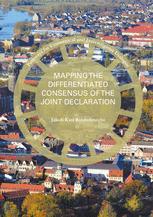

Most ebook files are in PDF format, so you can easily read them using various software such as Foxit Reader or directly on the Google Chrome browser.
Some ebook files are released by publishers in other formats such as .awz, .mobi, .epub, .fb2, etc. You may need to install specific software to read these formats on mobile/PC, such as Calibre.
Please read the tutorial at this link: https://ebookbell.com/faq
We offer FREE conversion to the popular formats you request; however, this may take some time. Therefore, right after payment, please email us, and we will try to provide the service as quickly as possible.
For some exceptional file formats or broken links (if any), please refrain from opening any disputes. Instead, email us first, and we will try to assist within a maximum of 6 hours.
EbookBell Team

5.0
108 reviews This book uses the insights of cognitive linguistics to argue for the possibility of differentiated consensus between separated churches. The Joint Declaration on the Doctrine of Justification, signed by the Lutheran World Federation and the Roman Catholic Church in 1999, represents the high water mark of the twentieth-century ecumenical movement. It declares that the sixteenth-century condemnations related to justification do not condemn the teachings of the partner church. Some critics reject the agreement, arguing that a consensus that is differentiated is not actually a consensus.
In this book, Jakob Karl Rinderknecht shows that mapping the "cognitive blends" that structure meaning can reveal underlying agreement within apparent theological contradictions. He traces Lutheran and Catholic positions on sin in the baptized, especially the Lutheran simul iustus et peccator and the Catholic insistence that concupiscence in the baptized is not sin. He demonstrates that the JDDJ reconciles these positions, and therefore that a truly differentiated consensus is possible.